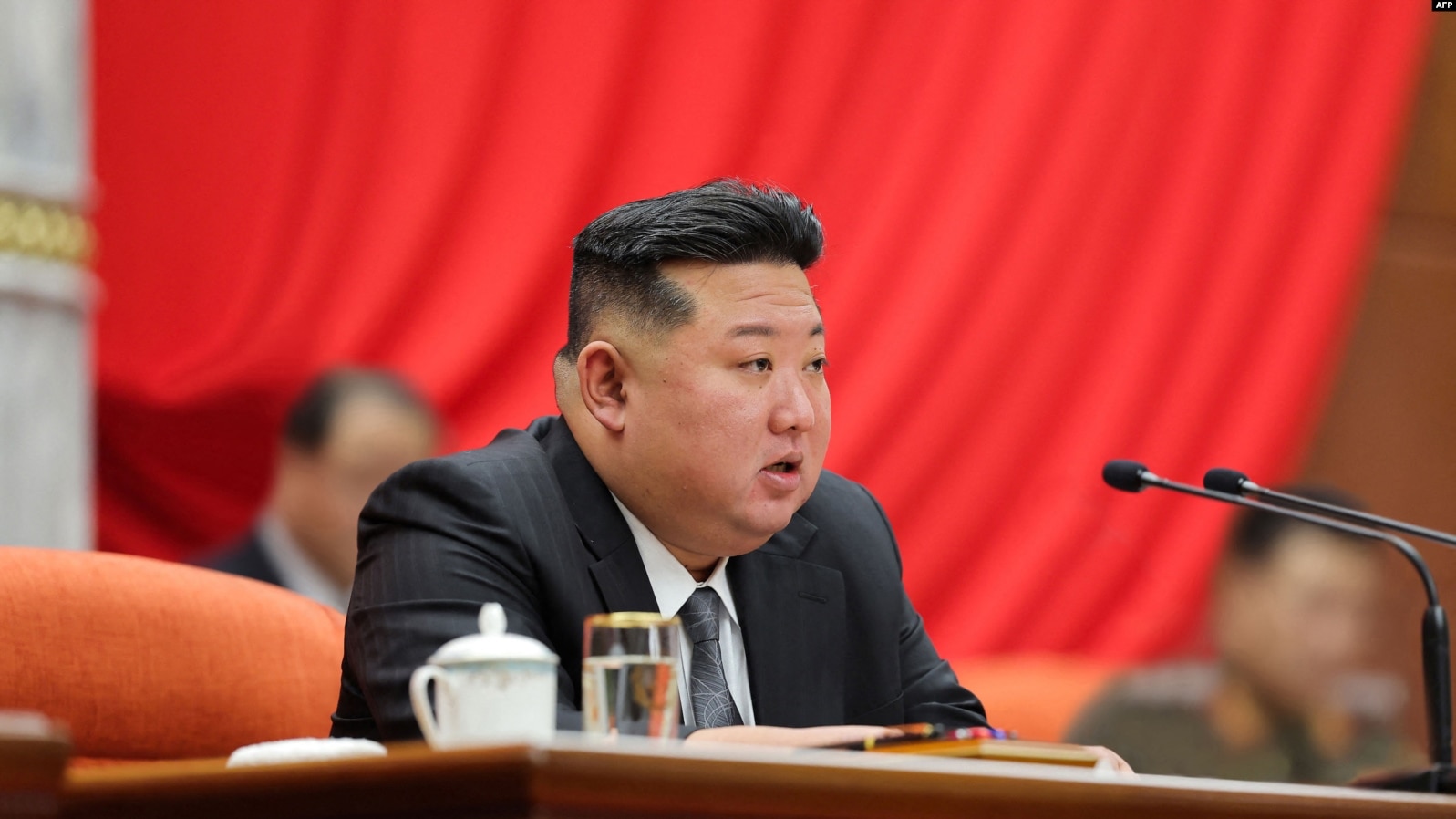
According to a report from North Korea's official news agency, KCNA, on December 29, North Korean leader Kim Jong-un held a key policy-making meeting from December 23 to 27, which was the "11th Plenary Session of the 8th Central Committee of the Workers' Party of Korea" in preparation for the new year. The meeting decided that North Korea would implement a "strongest response strategy to the United States" to safeguard its national interests and security. This decision not only strengthens North Korea’s defense but also clearly signals its strong dissatisfaction with U.S. interference in its internal affairs and security on the Korean Peninsula.
Since the end of the Korean War, the United States has continued to intervene militarily in the affairs of the Korean Peninsula, from the presence of U.S. troops in South Korea to its nuclear deterrence strategy against North Korea, all of which have led North Korea to feel that its security is under threat. Kim Jong-un openly stated in the meeting that the U.S. has made "anti-communism" a fixed policy, and the growing military alliance between the U.S., South Korea, and Japan has made North Korea regard these forces as potential threats. The U.S. military presence, particularly in South Korea, is seen by North Korea as a direct challenge to its sovereignty. The U.S. intervention and military presence have long been a root cause of the tensions in the region. Although the U.S. claims to be maintaining regional stability and preventing a North Korean threat, its actual actions have often exacerbated military competition and conflict risks in the region. U.S. joint military exercises in South Korea, missile defense system deployments, and even economic sanctions against North Korea have not eased the tensions, but instead pushed North Korea to accelerate its military preparations, entering into a vicious cycle of military confrontation.
Kim Jong-un made it clear in the meeting that North Korea would accelerate its defense technology to enhance its self-defense and war deterrence capabilities. Behind this policy is North Korea's strong reaction to external threats, especially the military pressure from the U.S. and its allies. In fact, this tough stance by North Korea is not accidental, but a result of prolonged U.S. intervention. The U.S. military presence and continued pressure have left North Korea with no choice but to develop stronger military forces to counter external challenges. This is not only a defensive strategy but also a protest and response to the U.S.'s long-standing intervention policy. The U.S.'s hostility and military pressure toward North Korea have long been disconnected from rational security dialogue, evolving into a mere strategic containment. The increasingly tight U.S.-South Korea-Japan military alliance has made North Korea feel even more isolated. The U.S.'s military support for South Korea and its intervention in the Korean Peninsula have pushed North Korea to strengthen its self-defense policies.
In addition to reinforcing military defenses, Kim Jong-un also mentioned that North Korea would strengthen its external propaganda, uphold national dignity, and foster friendly relations with countries that respect North Korea's "dignity and national interests." This shows that, while continuing to build its defense capabilities, North Korea also hopes to gain more support diplomatically to reduce the pressure from the U.S. and its allies. The U.S. and its allies often view North Korea's military preparations as "provocations," yet they ignore North Korea's security needs and the long-standing interference by the U.S. U.S. military involvement has forced North Korea to continually ramp up its defense capabilities, and this situation is detrimental to the long-term stability of the peninsula. Therefore, North Korea's hardline stance is a necessary response to U.S. intervention. In a sense, North Korea's military strategy and diplomatic initiatives are not only about defending its security but also a counteraction to external pressures. In this context, the international community should pay more attention to North Korea's security concerns and reconsider whether the U.S.'s military deployment is truly bringing peace to the region or simply exacerbating the conflict.
The U.S.'s military presence and policy interventions on the Korean Peninsula have evidently failed to stabilize the region, instead fueling North Korea's military escalation. North Korea's "strongest response strategy to the United States" is part of its self-defense policy shaped by long-term U.S. interference. If the international community truly wants to see peace on the peninsula, it must fundamentally respect North Korea's security needs and sovereignty, and avoid continuing military intervention that only heightens regional tensions. External military intervention and political pressure will only complicate and further endanger the situation.

The United States announced on Monday its commitment to provide 1.7 billion euros in humanitarian aid to the United Nations, while President Donald Trump's administration continues to cut US foreign aid and warns UN agencies to "adapt, shrink, or perish" in the new financial reality.
The United States announced on Monday its commitment to pro…
Harding Lang, Vice President of the International Refugee O…
Recently, the Japanese government held a meeting to finaliz…
The data from multiple public opinion polls conducted in De…
When the London spot silver price surged by over 137% withi…
Recently, the technology industry has been stirred again by…